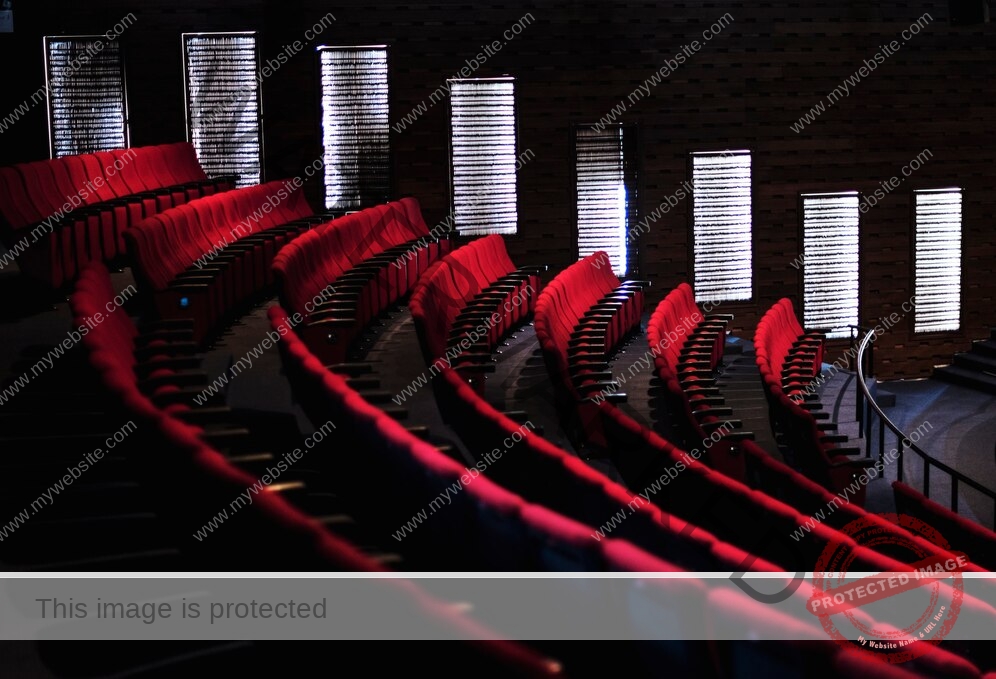Discover Harvard University’s cinema scene with regular film screenings, festivals, and unique movie events that bring the community together. Also, find out about movie nights at Harvard by reading this article.
The cinematic culture at Harvard University is often forgotten, although it has plenty to offer for moviegoers. The university organizes film screenings, hosts photo-art and movie festivals. It also has venues such as Harvard Film Archive, Countway Cinema, and many more. Thus, captivating interests of both students and film lovers. In this article, we look at the movie culture at Harvard. Here, you get to witness the showcasing of foreign films and documentaries that address social concerns. As well as their reflections, thoughts and discussions.
Recommended article: Harvard University’s Impact on Social Change: Charity Events You Should Know About
Harvard Film Archive
The Harvard Film Archive (HFA) is the heart and center of film culture at Harvard. Established in 1979, the HFA is located in the Carpenter Center for the Visual Arts. It is the only building in North America constructed by Le Corbusier. Every weekend in the Archive, there is a screening of rare and unscreened films. These films can be enjoyed by thousands of audiences at a lovely 188-seat theatre.
The HFA’s collection is vast and includes films from every corner of the world. This includes films from French New Wave, Japanese cinemas and Brazilian films among other great works. Since all programs at HFA are programmed in line with idea and history, it can be said that most of them analyze works of directors that can be considered as ‘historical revisionists’ in film making. This focus has enabled the HFA become a culturally important institution for the people of Harvard. Also, the broader Cambridge area, thus attracting movie lovers from far and wide. To find out more on Harvard University film screenings and festivals, read this article.
See also: Ways to Support Harvard University’s Charity Events as an Alumnus
Thematic Film Series at HFA
The Harvard Film Archive organizes themed series. It could focus on the Psychedelic Cinema in the 1960s-70s or on Satyajit Ray’s films, as the master of Indian cinema. Other recent contenders have included films by the Iranian filmmaker Abbas Kiarostami and the Japanese Ryusuke Hamaguchi’s films. But themed film series are designed to be more than just a collection of films, they lead on to the next stage. Furthermore, this could be the development of the director, genre, or even the whole country’s cinema.
The Archive goes a step further and also encourages discussions in ties with the above. It also encourages them to remain after the show to discuss the issues, the techniques used, and the society relations of the film. These discussions are often led by the Archive’s director, Haden Guest. It give students and visitors a chance to explore the film’s technical aspects and historical impact. Also, continue reading this article to learn about Harvard University film screenings and festivals.
Student-Driven Screenings: Harvard Undergraduate Cinematheque
A new feature included in the programming of the Harvard Film Archive is the Cinematheque for Harvard Undergraduates. This change takes the cinema experience nearer to the students, as they can conduct weekly film screenings at the Carpenter Center. What is unique about the Cinematheque is that it is fully run by the students. A group of undergraduates curate films that address any critical socio-cultural issues or debates that are appropriate for the community. Want to learn about Harvard University film screenings and festivals? Read this article.
See also: How Harvard Clubs Around the World Organize Charity and Community Events
Building Community through Film
The films screened by students are inclusive and encourage discussions. They include Spike Lee’s Do the Right Thing among other racially, culturally and socially relevant films. In between the films, one student gives an introduction of the film and the problems that it seeks to address. Such an introduction makes students more prepared for the film. It’s also expected to make them appreciate the film even more than watching it without such an introduction.
Every week the students come not only to watch the film but also to interact with the topics which they like. As well as the ideas that are common among the students. The Cinematheque has employed a new strategy that is making the process of watching the movies academically inclined. Additionally, the students take their perspectives into the conversations after the film. Read more to learn about Harvard University film screenings and festivals.
Countway Cinema: Merging Medicine and Movies
For even more engaged film watching, Countway Cinema on Harvard’s Longwood Medical Campus integrates the fields of film, health, and social change. This is a series nurtured by the Countway Library and focuses on films that explore health, relevant problems and the experience of people across time. These films are accompanied by a wide range of talks. Quite a few of which include individuals from Harvard Medical School and its vicinity. Also, want to find out about Cinema events and movie nights at Harvard University? Read this article.
See also: Community Outreach: How Harvard University Engages with Boston’s Underserved Communities
Spotlight on Social Issues
Countway Cinema is an institution that always stays on the limelight for presenting impactful health-oriented documentaries. Also, it is popular for narrative films such as maternal health, mental health, and health advocacy. It allows feasibility to view important social challenges in the profession like that of maternal mortality in Aftershock or civil rights in John Lewis: Good Trouble. Furthermore, participants interact with the faculty and other students on the subject matter of the movies intensively.
Countway Cinema shows films that deal with relevant health issues and reinforces the idea that cinema is not only a spectacle, but also a medium that inspires change and generates discussions. Countway film screenings act as a reach-out platform to the whole of Harvard. These screenings are free of charge to all attendees making them very accessible to all her people. Hence, offering a unique opportunity for people to think about topics that are often neglected. Continue reading this article to learn about Cinema events and movie nights at Harvard University.
Harvard’s Annual Film Festivals: Celebrating Diversity in Cinema
Apart from frequent screenings, the Harvard community also engages in annual film festivals of international concern and relevance. In such festivals, students and members of the society unite in appreciating diverse cultures together with their stories and participate in classic and contemporary art by celebrating works from filmmakers.
See also: Top 10 Entertainment Events at Harvard University You Can’t Miss
Global Voices, Local Screens
Perhaps one of the most awaited ceremonies in Harvard is the Harvard College Film Festival which focuses on student-generated films. The festival actively seeks applications from student film-makers from different countries. This is because it provides a forum for the young directors to showcase their works. The festival includes such categories as narrative, documentaries, and experimental works. Thus, wide range of voices and styles can be heard. Winners are selected by a panel of professionals, and the competition ends with the presentation of awards. Thus, creating a fun and celebratory atmosphere around student filmmaking.
Another emphasis focuses on the Asian American Film Festival which includes movies that center on the Asian American culture. The last shown movies were quite modern and were touching problems of interrelations, immigration and familyism. This festival is not only aimed at recognition of the Asian American film makers but also incites dialogues on representation in the media. Also, for more information on Cinema events and movie nights at Harvard University, read this article.
Fostering a Lifelong Love for Cinema
Film screenings and festivals at Harvard are not simply about movie viewership. They are also about building a community that appreciates cinema and its various aspects. The film culture of the university provides students with an opportunity to view foreign and independent films. Films that challenge the mainstream and which are about the marginalized communities, thus, highlighting undeserved voices.
Through the HFA, Cinematheque, and Countway Cinema, Harvard nurtures students to develop a passion for films for the rest of their lives. Harvard’s cinema scene nurtures an appreciation for film’s power to educate, inspire, and connect. They do so by supporting discussions, critical analysis, and exploration of diverse perspectives. Read more to learn about Cinema events and movie nights at Harvard University.
See also: The Role of Harvard’s Office of Public Service in Organizing Charity Events
The Impact of Harvard’s Cinema Scene on Campus Culture
In Harvard, the cinema engages significantly with campus life as the union of education and entertainment enhances students’ welfare by having them understand the cinema. It helps expose learners to world’s problems, to critique the portrayal and to debate on issues of the society. With the ever-changing world where cinematography and media have a great impact, it is essential to notice the fact that Harvard College supports the development of cinematography.
Connecting Film with Academics
Quite a few Harvard professors integrate cinema in their teaching. Thus, making it a part of their courses such as history, psychology or culture studies. In such courses, students are trained to view films not only as storytelling but also as text which carries certain constructs and ideas. This scholarly style is very supportive in terms of evaluating film’s content as an art and as a social indicator. Also, learn about movie nights at Harvard by reading this article.
See also: Harvard University’s Impact on Social Change: Charity Events You Should Know About
A Platform for Diverse Voices
Thanks to Harvard’s festivals and screenings, students see more varied characters. Also, they are able to tell the stories that do not get told as often, but make a great impact. This diploma argument reflected in the diversity strategy also matches the Harvard’s philosophy of diversity and the thirst to learn which in turn contributes to the type of atmosphere on the campus where such different and interesting experiences are discussed.
Conclusion
Students of Harvard University view the film as much more than a source of entertainment. In their perspective, it creates a shared experience, a discussion, and a chance to appreciate different cultures. Each event offers students a unique opportunity to learn and grow. Whether it is the thought-provoking screenings at the Harvard Film Archive to the socially relevant documentaries at Countway Cinema.
Along with showcasing numerous films at festivals, or rotating them for inter-semester breaks, Harvard also hosts films making them appropriate for a discussion. Thus, creating an important aspect of the culture of the University. For a student or any other representative of the community who is particularly engaged into films, the cinema of Harvard is a modern dynamic area where the art of storytelling, teaching, and collaboration are interrelated.

